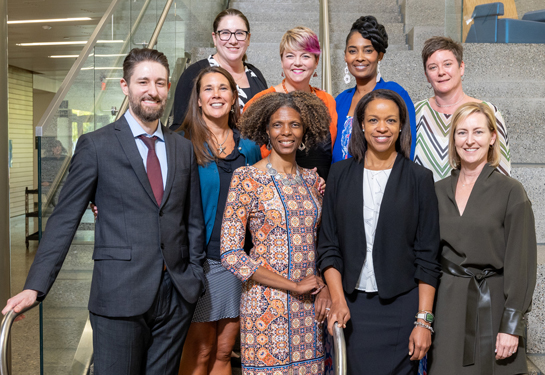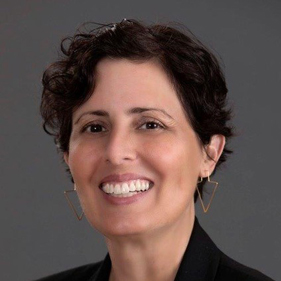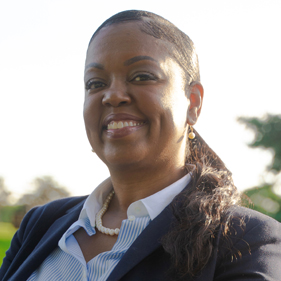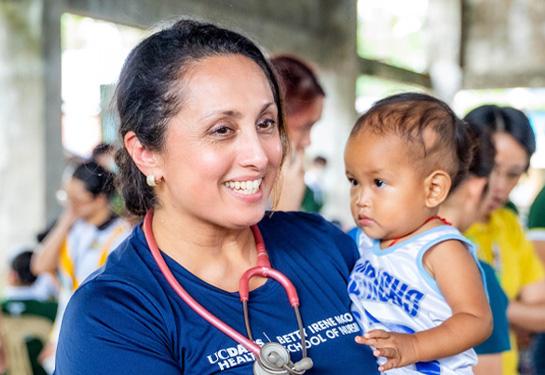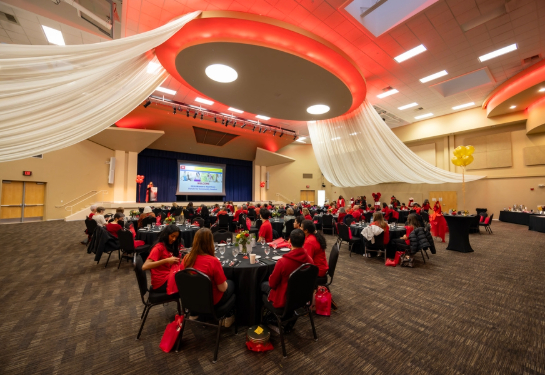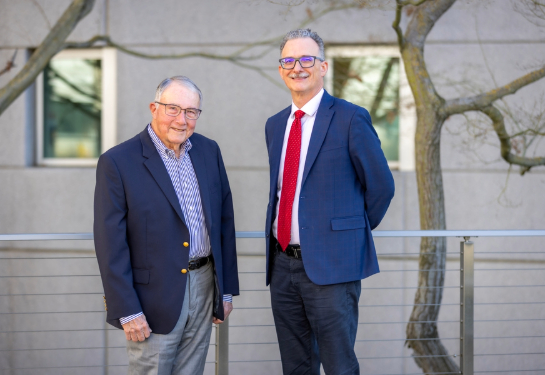Betty Irene Moore Fellows gather at UC Davis nursing school for fourth annual convocation
Inaugural cohort graduates during largest ever fellowship program event
When the national program office for the Betty Irene Moore Fellowship for Nurse Leaders and Innovators convened its annual Convocation July 12-20 in Sacramento, it celebrated two historic milestones. The event marked the largest ever gathering of fellows, national advisory council members, and nurse leaders and program faculty. It also served as the official graduation ceremony for the inaugural cohort of fellows that began the program in 2020.
More than 80 people, including nearly 50 fellows, gathered at the Hyatt Regency Sacramento for a special reception Fri., July 14 to hear the 2020 cohort present the results of their fellowship projects. These focused on a wide range of topics, including:
- advancing health equity through prevention and education
- providing tools for cancer caregivers
- cancer treatment support in underserved areas
- using telehealth to help adolescents living with neurological conditions
- offering remote forensic exams using telehealth
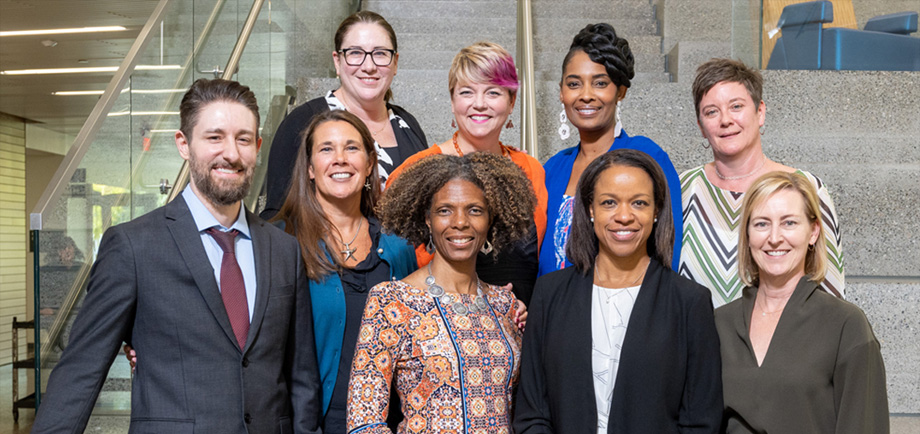
Inaugural fellow Melissa O’Connor said convocation was a special time to learn, explore boundaries and gain confidence as a nurse leader. Her project focused on a clinician decision-support model for home health discharge. She is grateful to the program for supporting her research and professional growth during the past three years.
“As a Betty Irene Moore Fellow, I learned about my role, capabilities and where I want to go in my nursing leadership and innovation journey. Never have I felt stronger, more empowered and competent to explore and address the challenges that lie ahead,” O’Connor said.
Practicing media pitches
On Sat., July 15, convocation attendees gathered at the Betty Irene Moore Hall for the keynote session, which began with the 2021 cohort pitching its projects to a panel of journalists. Four local members of the press shared their tips for gaining media coverage and gave expert feedback to each of the 10 fellows on their project pitch.
Luz Huntington-Moskos, a member of the 2021 cohort, said the press panel experience was enlightening and invigorating.
As a nurse scientist, I need to view the media as an essential partner in communicating important health and science information.—Luz Huntington-Moskos, 2021 fellow
“As a nurse scientist, I need to view the media as an essential partner in communicating important health and science information. The live interaction with experienced media professionals and all the media training provided during convocation was incredibly valuable to me. I plan to put these newly developed media skills to good use,” Huntington-Moskos said.
Her fellow cohort member Rachel DiFazio agreed.
“One of the most valuable skills that I learned during convocation was how to write an effective media pitch. Not only did I have the opportunity to write the pitch and receive feedback from the fellowship faculty, I also was able to pitch my project idea to professional reporters working in radio, television and print. Although initially intimidating, this activity helped to boost my confidence and helped me to realize the importance of working with the media,” DiFazio said.
Remembering Gordon Moore
After the press panel session, Heather M. Young, national program director for fellowship, led a discussion focused on remembering Gordon Moore. Moore, emeritus chairman of Intel Corporation and cofounder of the Gordon and Betty Moore Foundation, died in March and left behind a legacy of entrepreneurship and leadership excellence.
Young interviewed Doug Busch, chief operating officer emeritus of Care Innovations and chief technology officer emeritus of Intel’s Digital Health Division, about Moore’s down-to-earth nature and unassuming leadership style that inspired his colleagues and employees.
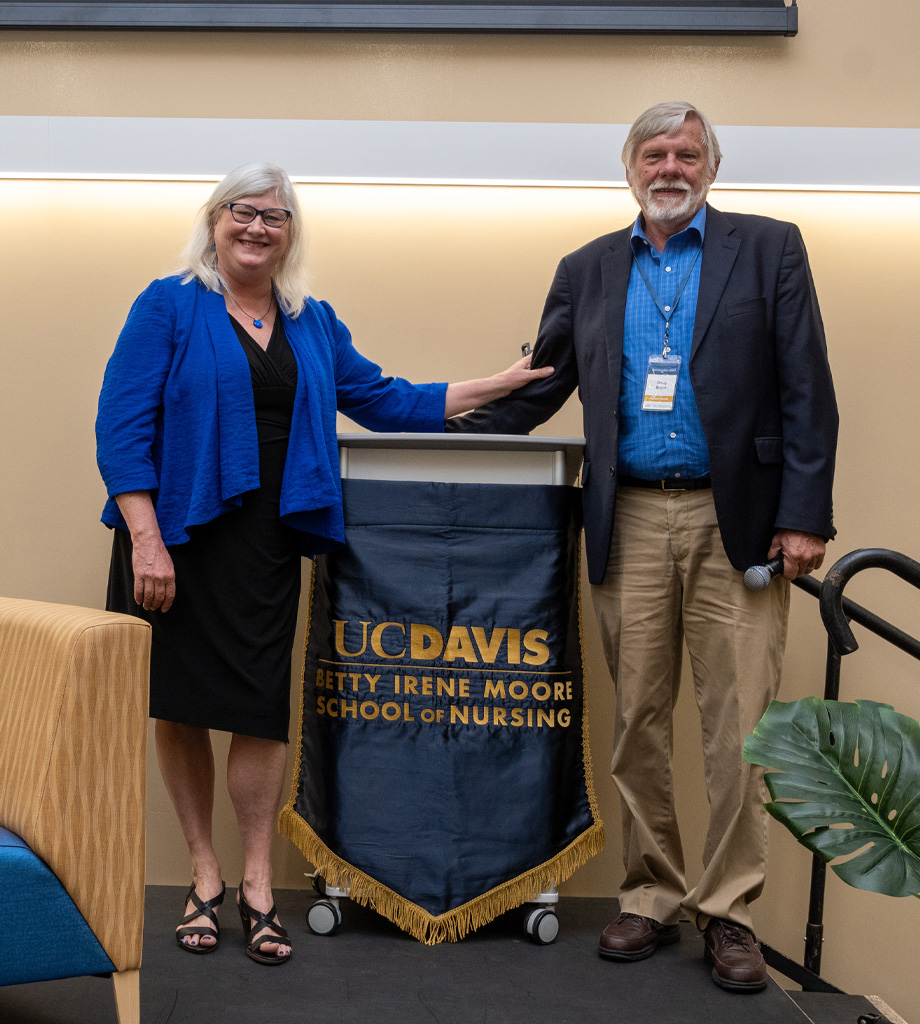
“Gordon Moore’s ability to foster a culture of collaboration and creativity, coupled with his remarkable capacity to inspire, made him a true pioneer in both technology and leadership,” Young said. “We are so grateful to Doug Busch for allowing us a glimpse into the realm of a remarkable leader and for sharing personal stories that highlight how our fellows can lead and be innovative at their own institutions.”
Exerting influence as nurse leaders
The keynote session concluded with a panel discussion focused on how nurses can exert influence, changing the health care landscape for the better. Young moderated a discussion with Fellowship National Advisory Council members Martha Dawson and Susan Reinhard. Dawson is an associate professor at the University of Alabama at Birmingham School of Nursing and president of the National Black Nurses Association. Reinhard is senior vice president and director at the AARP Public Policy Institute and chief strategist at the Center to Champion Nursing in America. They discussed how fellows can embrace their roles as innovators and changemakers, impacting health care policy decisions.
Lessons on leadership continued in structured learning activities throughout convocation. The sessions focused on:
- managing people
- being an anti-racist leader
- networking
- human-centered design
- technological innovation
- implementation science
- entrepreneurship
- budget development
Sessions were led by the national program office, UC Davis Graduate School of Management and expert program faculty from across the nation.
Engaging in these sessions empowered me to continue in my journey as a leader, unapologetically and authentically.—Dora Clayton-Jones, 2021 fellow
“Engaging in these sessions empowered me to continue in my journey as a leader, unapologetically and authentically,” said Dora Clayton-Jones, a member of the 2021 cohort. “The opportunity to spend time with my cohort and other cohorts, to have space for reflective action, and to be affirmed in my scholarship as I work in collaboration and in solidarity with the communities I serve was life changing.”
Communicating vision statements
Courses on strategic communications are a large focus across cohorts and are facilitated by prominent nurse journalists Barbara Glickstein and Diana Mason. The 2022 cohort learned how to communicate their vision for their fellowship research projects and get involved in the media.
“Engaging with the media was something I was terrified of doing prior to attending convocation. After that session, I gained skills and confidence pitching my vision statement. I also gained a deeper appreciation for disseminating my work in wider media outlets,” said Tam Nguyen, 2022 cohort fellow.
Alvin Jeffery, also in the 2022 cohort, echoed Nguyen’s sentiments.
“It was a fantastic learning opportunity to craft a succinct, powerful statement about my vision for my project. Working with program faculty and my peers to verbalize what’s in my head and heart is an experience that will change how I articulate my ideas in the future,” Jeffery said.
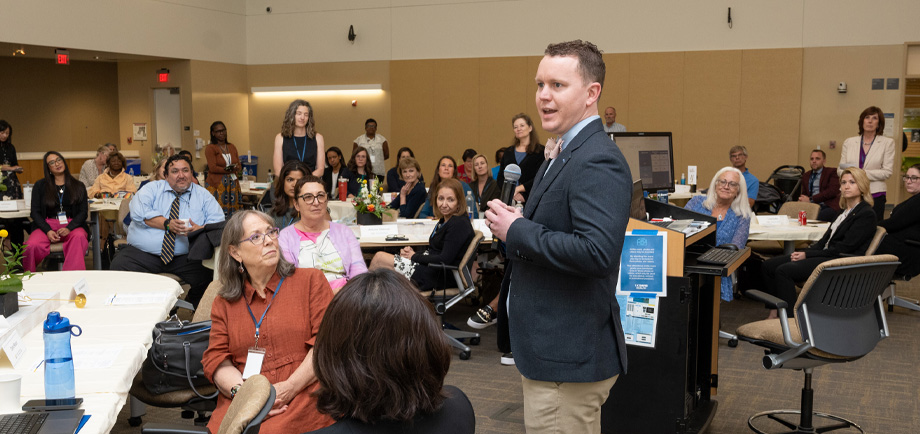
Joys of being together
Young said everyone was so excited and grateful to be together, sharing experiences and inspiration.
“Being able to be together in person has been such a gift, and this is the first time the Fellowship National Advisory Council and the 2022 cohort has been able to physically meet. This program is made possible by both the generous funding from the Gordon and Betty Moore Foundation and the exemplary contributions of the impressive program faculty,” she explained.
Fellow Kristen Fessele said she was energized and inspired by the experience.
“Being together for the week gave us a chance to not only bond as a group and across cohorts, but to get much more insight into what drives each of us as nurse scientists. There is so much passion behind everyone’s chosen work and working together so closely really brought that home in so many ways,” said Fessele, a 2022 cohort fellow.
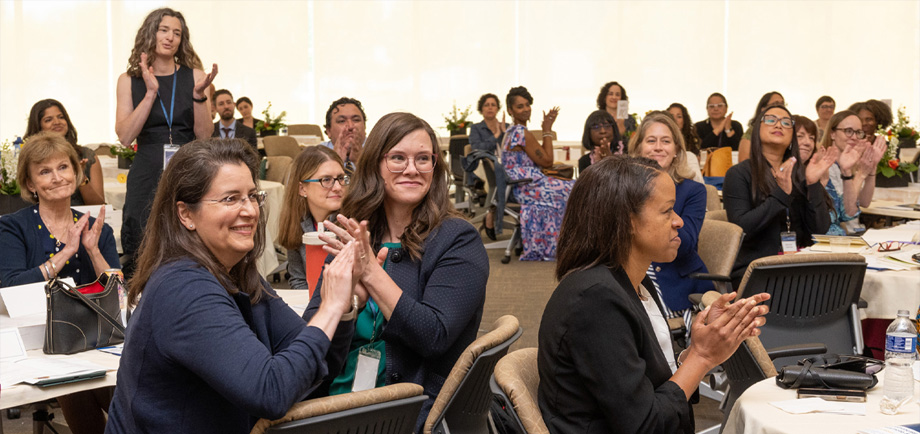
About the Fellowship
The Betty Irene Moore Fellowship for Nurse Leaders and Innovators launched in 2020 and is supported by a $37.5 million grant from the Gordon and Betty Moore Foundation, which was augmented by an additional $7.4 million grant from the foundation in 2023. Approximately 10 early- to mid-career nursing scholars and innovators are selected every year to participate in the program and take part in an innovative project or study. Fellows receive $450,000 in funding over three years for their project plus $50,000 for their home institution. Fellows gather annually at the Betty Irene Moore School of Nursing at UC Davis, when safety guidelines permit, for a week-long convocation and participate in an online learning community and mentorship throughout the three-year period.

